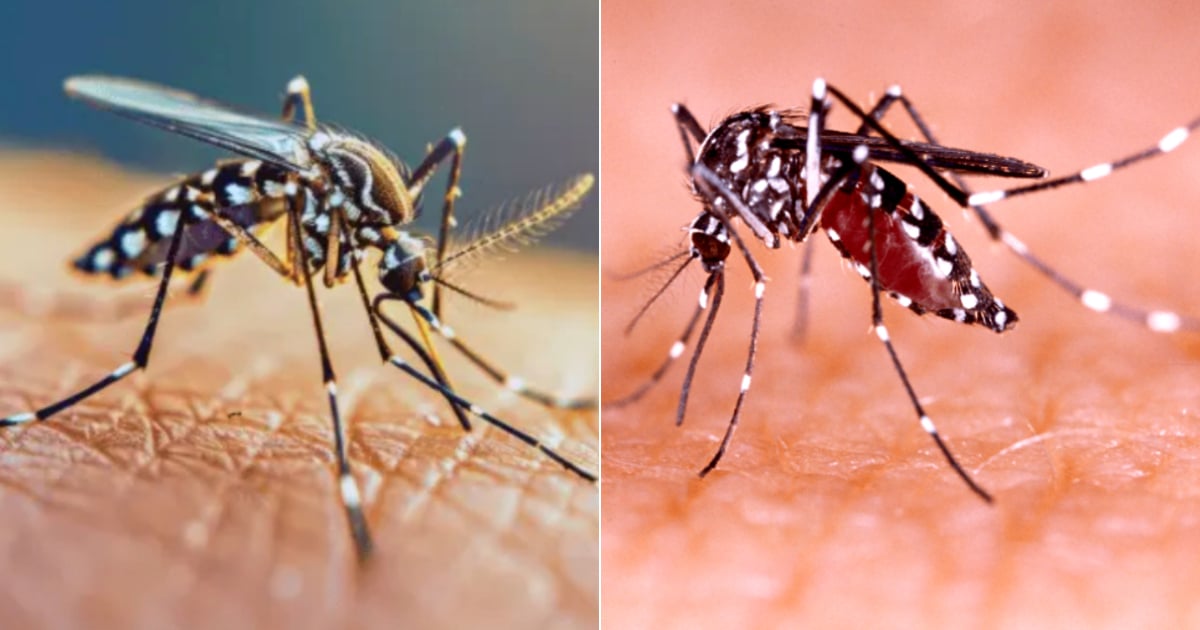
Related videos:
Cuba is facing a new health alert due to the increase in cases of dengue and Oropouche fever in several provinces across the country.
The confirmation of the Oropouche virus in nine provinces and 23 municipalities, detected at the national reference laboratory of the Pedro Kourí Institute of Tropical Medicine (IPK), has activated the health systems on the island.
The municipalities of Matanzas, Mayabeque, Villa Clara, Sancti Spíritus, Ciego de Ávila, Holguín, Guantánamo, Santiago de Cuba, and Cienfuegos have confirmed the presence of the Oropouche virus based on samples analyzed at the national reference laboratory of the Pedro Kourí Institute of Tropical Medicine (IPK)
Dr. Francisco Durán, national director of Epidemiology at the Ministry of Public Health (MINSAP), reported that these cases were identified through follow-up actions and surveillance of nonspecific febrile syndromes. All patients have shown favorable progress, improving between the third and fourth day since the onset of the illness, the specialist stated.
He also explained that Oropouche fever has a mild clinical presentation, with an incubation period of 5 to 7 days, and is characterized by fever, headaches, and muscle and joint pain. In some cases, vomiting and diarrhea are also reported.
Although some patients may experience a second episode of symptoms similar to the initial one around the sixth day, no sequelae or severe cases have been reported, nor any deaths. There is no specific treatment for this illness, so it is recommended to see a doctor for general measures to alleviate the symptoms.
Regarding dengue, the expert noted an increase in the incidence rate of suspected cases in recent weeks, particularly in the special municipality of Isla de la Juventud, as well as in the provinces of Santiago de Cuba, Guantánamo, Ciego de Ávila, Camagüey, Holguín, and Cienfuegos.
Unlike the Oropouche virus, dengue can progress to severe forms and can be fatal, which emphasizes the importance of seeking timely medical attention.
Both viruses are transmitted by mosquitoes: dengue by Aedes aegypti and Oropouche fever by mosquitoes of the Culex genus and flies of the Culicidae family (biting midges). This situation is further complicated by inadequate environmental conditions, high temperatures, and increased rainfall across the country.
Additionally, the country continues to monitor Acute Respiratory Infections, showing an 8.4% decrease in the number of medical consultations for this reason. Currently, the endemic corridor is within the safety zone, with no reported cases of COVID-19, and the circulation of Influenza A and non-pandemic Coronavirus has been confirmed.
To address this complex epidemiological situation, the top officials of the MINSAP are touring all the provinces and the special municipality of Isla de la Juventud, assessing the preparedness and organization of the regions.
Durán emphasized the importance of public participation and cooperation. He recommended seeking immediate care from the health system in the presence of symptoms such as fever, headache, joint pain, general malaise, diarrhea, and vomiting.
He also emphasized the importance of adhering to home or hospital entry measures as appropriate, supporting sanitation initiatives in homes and workplaces, and collaborating with campaign workers in each locality to implement focal treatment and/or adulticidal actions.
"The healthcare system on the Island is not prepared for the Oropouche virus."
Miguel Ángel Ruano, president of the Free Cuban Medical Guild and a physician residing in Colombia, obtained a letter that the MINSAP sent to the directors and heads of postgraduate departments on the Island, warning that the current epidemiological situation could become "more complex."
In it, the authorities refer to the increase in episodes of "nonspecific" fever that have occurred in Santiago de Cuba, which even the state-run media had to acknowledge.
According to Ruano, "the healthcare system is not prepared to tackle" this Oropouche epidemic in the largest of the Antilles, and the lack of resources could lead to many of these infections developing into meningitis or encephalitis, which are much more serious conditions.
In fact, in the letter to the postgraduate authorities, Professor José Luis Aparicio Suárez, the General Director of Medical Education, acknowledged that "there are currently no vaccines or specific antiviral medications available to treat OROV infection."
Therefore, the recommended treatment approach is palliative, "focused on relieving pain, rehydrating the patient, and managing any vomiting that may occur."
He also warned that in situations where "the disease presents itself in a neuroinvasive manner, it will be necessary for the patient to be admitted to specialized units that allow for constant monitoring."
In an interview with CiberCuba, Ruano explained that the letter from MINSAP discusses the need to prepare the heads of departments in light of the alert from the Pan American Health Organization (PAHO) regarding outbreaks of the Oropouche virus (OROV).
According to the document, which CiberCuba accessed and was sent to the Free Cuban Medical Guild by its affiliates on the Island, the incubation period is 5 to 7 days, during which patients experience high fever, headaches with light sensitivity, muscle pain, joint pain, and in some cases, rashes.
"In certain patients, the symptoms may be more severe and include vomiting and bleeding," the letter emphasized, clarifying that the infection can last from 2 to 3 weeks.
The authorities also acknowledged that "in exceptional situations," the OROV can cause meningitis and encephalitis, and in these cases, patients exhibit symptoms such as dizziness, lethargy, nystagmus, and neck stiffness. As is usually the case, the virus can be detected in the cerebrospinal fluid.
Finally, the letter addressed the vector control measures that focus "on reducing mosquito populations by identifying and eliminating breeding and resting sites of the vectors."
Archived in: